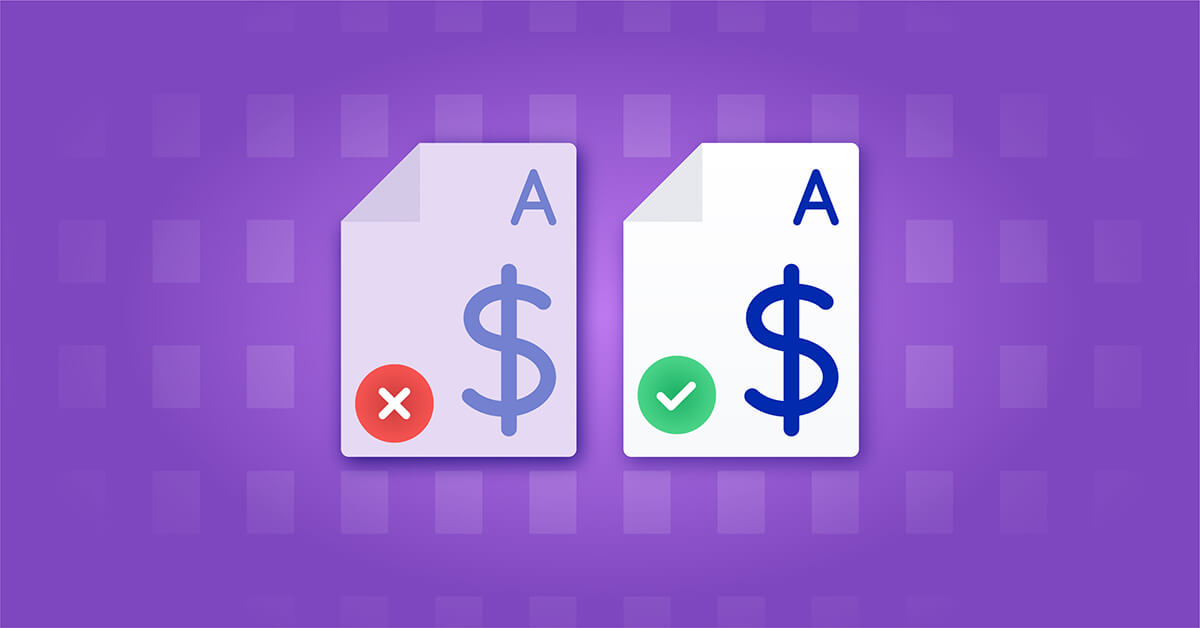While the trucking business has little complexity involved within its own operations, the broader industry has no dearth in complications arising from seemingly straightforward processes. Inconsistencies are commonplace—especially in workflows that involve manual intervention. Invoicing is one such hassle, as manually processing large invoice volumes with numerous surcharge and freight classifications will inevitably lead to errors.
These complications can be varied. But in reality, the rates on the invoice will often differ from the booking confirmations, the bills of lading, and the original contracted rates. Interestingly, these billing errors are not always in the shipper’s favor.
Research estimates show an error rate of up to 25% in freight invoicing. So, if a carrier skips the validation of freight invoices before paying, they may leave a lot of unnoticed money on the table.
From manually verifying the rate cards to cross validating discounts, carriers deal with numerous cumbersome steps before concluding on the invoice’s accuracy. So, what if this process could be performed proactively without any human interference? What if a tool could identify all of the irregularities and report on the mismatches at one go?
With today’s automation opportunities, freight audit through digital transformation helps carriers improve their bottom lines. While the management team expends energy and resources in ensuring freight volumes stay optimized for improving fleet efficiency, automating invoice handling removes one of their primary concerns - financial inconsistencies - from the picture.
How much money can be saved depends on the kinds of risks mitigated by the freight audit program. However, on average, these programs recover up to 8% of the total freight spend. For instance, a carrier making an annual freight spend of $2 million would roughly save close to $160,000 every year in needless expenses.
What is a freight audit program?
A freight audit is defined as the process of examining, adjusting, and verifying freight bills for accuracy. Traditionally, extensive hours and excessive manpower were invested in validating every rate, surcharge, classification, tax, discount, and insurance value before they were reconciled and paid. This cumbersome process is human-dependent and does not always do a 100% check before payment.
While this manual process could also be considered as a type of freight audit, it is not an ideal one. Technological advancements have allowed for a more enhanced approach to this compelling problem in the form of freight audit programs.
Freight audit programs leverage artificial intelligence and the Internet of Things (IoT) to perform their data validation activities. Their activity is similar to the behavior of most softwares, and relies on cloud solutions. Manual codes are built into this software to handle data validation activity, bringing in accuracy and reliability. These programs are sophisticated, and they increase efficiency by analyzing and tracking large volumes of logistics data from across the globe. They aim to catch the errors in billing (especially where over-billed), and act as a single repository of all invoices, rate cards, and supporting documentation.
How beneficial is a freight audit program?
The risks involved in a payment process for large-scale logistics companies are plentiful. From double billing to incorrect tax deductions, problems may show up in a number of different areas. The technology-driven freight audit process is designed to provide carriers with a competitive edge, optimize their operations, and mitigate their risks.
By streamlining documentation and data handling steps, freight audits help achieve a sense of direction and visibility. Complex logistical operations can be effectively controlled through the insights and reports that these freight audits are programmed to generate, and cost reduction is possible as human dependence can be reduced. Freight audit methodologies are also futuristic enough to allow human intervention when their expertise is required.
With AI catching invoice errors that the human eye would otherwise miss, most companies are switching to more refined forms of freight auditing. Standardizing and monitoring data streams will ultimately result in improved visibility across in-house operations, leading to better decision-making and optimization. Having a clean database devoid of data redundancy eliminates inconsistencies, and helps companies run operations without worrying about costly invoicing issues.
The OpenEnvoy edge - Traditional freight audits can happen at various frequencies and at various points in the transaction process. OpenEnvoy takes their audit solution above and beyond by doing a full audit of every invoice before it is paid. This creates data transparency at a detailed level and creates visibility across all relevant service vendors. With OpenEnvoy, duplicate and incorrect billing will never go undiscovered.



-1.webp?width=620&height=620&name=1600x1600-2%20(1)-1.webp)


